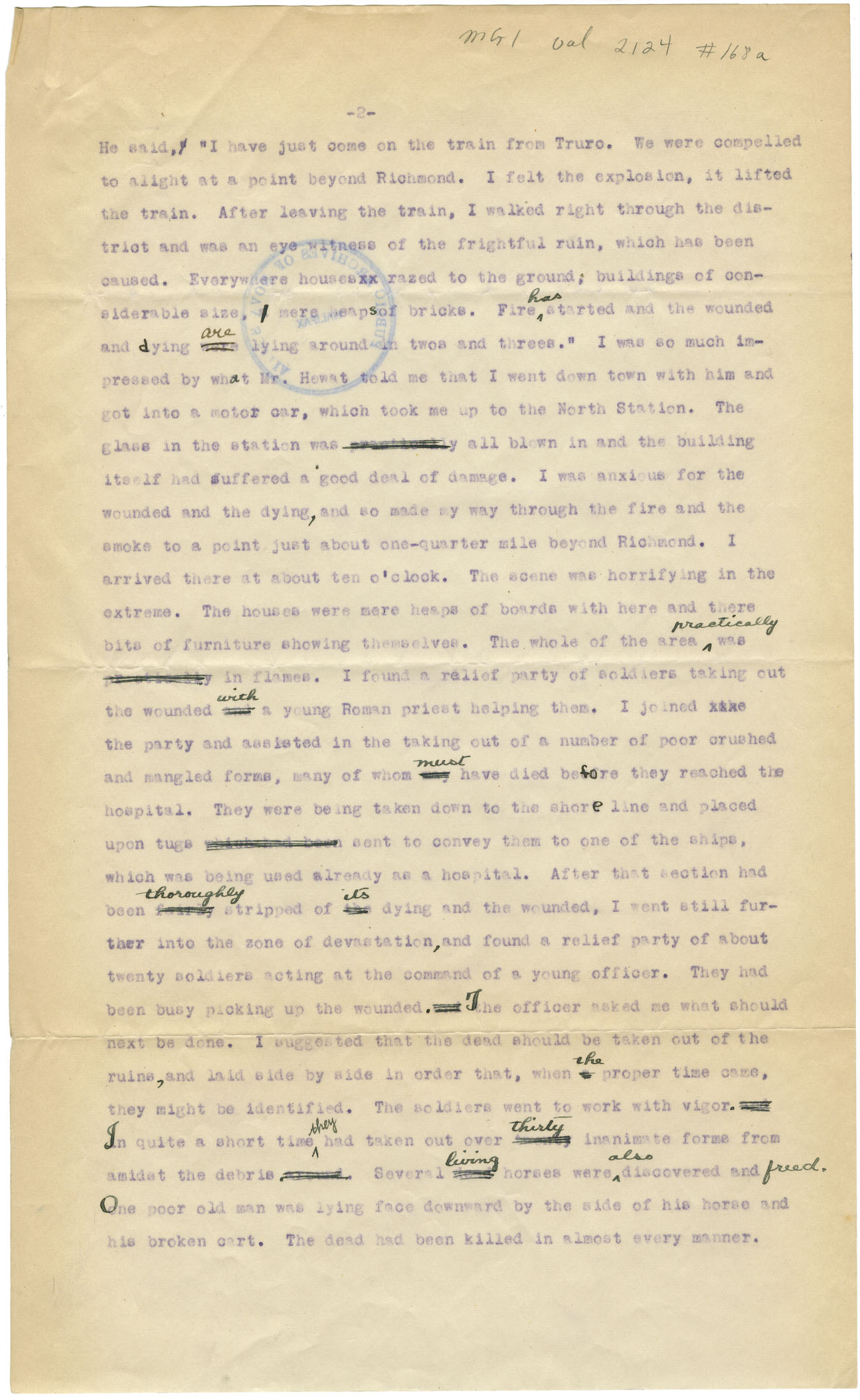Nova Scotia Archives
Archibald MacMechan
Halifax Disaster Record Office Materials
Personal narrative - J.P.O. Llwyd
28 December 1917. — 4 pages : 30 x 49 cm.
note: transcription publicly contributed - please contact us with comments, errors or omisions
-2-
He said, "I have just come on the train from Truro. We were compelled to alight at a point beyond Richmond. I felt the explosion, it lifted the train. After leaving the train, I walked right through the district and was an eye witness of the frightful ruin, which has been caused. Everywhere houses razed to the ground; buildings of considerable size, mere heaps of bricks. Fire has started and the wounded and dying are lying around in twos and threes." I was so much impressed by what Mr. Hewat told me that I went down town with him and got into a motor car, which took me up to the North Station. The glass in the station was all blown in and the building itself had suffered a good deal of damage. I was anxious for the wounded and the dying, and so made my way through the fire and the smoke to a point just about one-quarter mile beyond Richmond. I arrived there at about ten o'clock. The scene was horrifying in the extreme. The houses were more heaps of board with here and there bits of furniture showing themselves. The whole of the area practically in flames. I found a relief party of soldiers taking out the wounded with a young Roman priest helping them. I joined the party and assisted in the taking out of a number of poor crushed and mangled forms, many of whom must have died before they reached the hospital. They were being taken down to the shore line and placed upon tugs sent to convey them to one of the ships, which was being used already as a hospital. After that section had been thoroughly stripped of its dying and the wounded, I went still further into the zone of devastation, and found a relief party of about twenty soldiers acting at the command of a young officer. They had been busy picking up the wounded. The officer asked me what should next be done. I suggested that the dead should be taken out of the ruins, and laid side by side in order that, when the proper time came, they might be identified. The soldiers went to work with vigor. In quite a short time they had taken out over thirty inanimate forms from amidst the debris. Several living horses were also discovered and freed. One poor old man was lying face downward by the side of his horse and his broken cart. The dead had been killed in almost every manner.
Dean of Nova Scotia.
Reference: Archibald MacMechan Nova Scotia Archives MG 1 volume 2124 number 168

